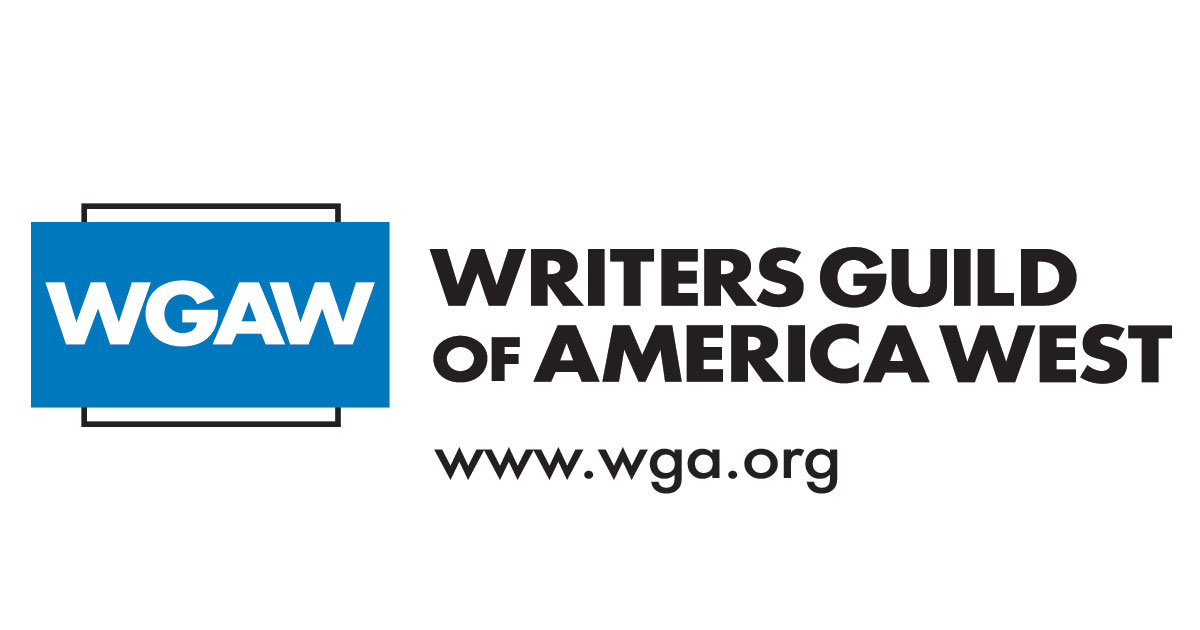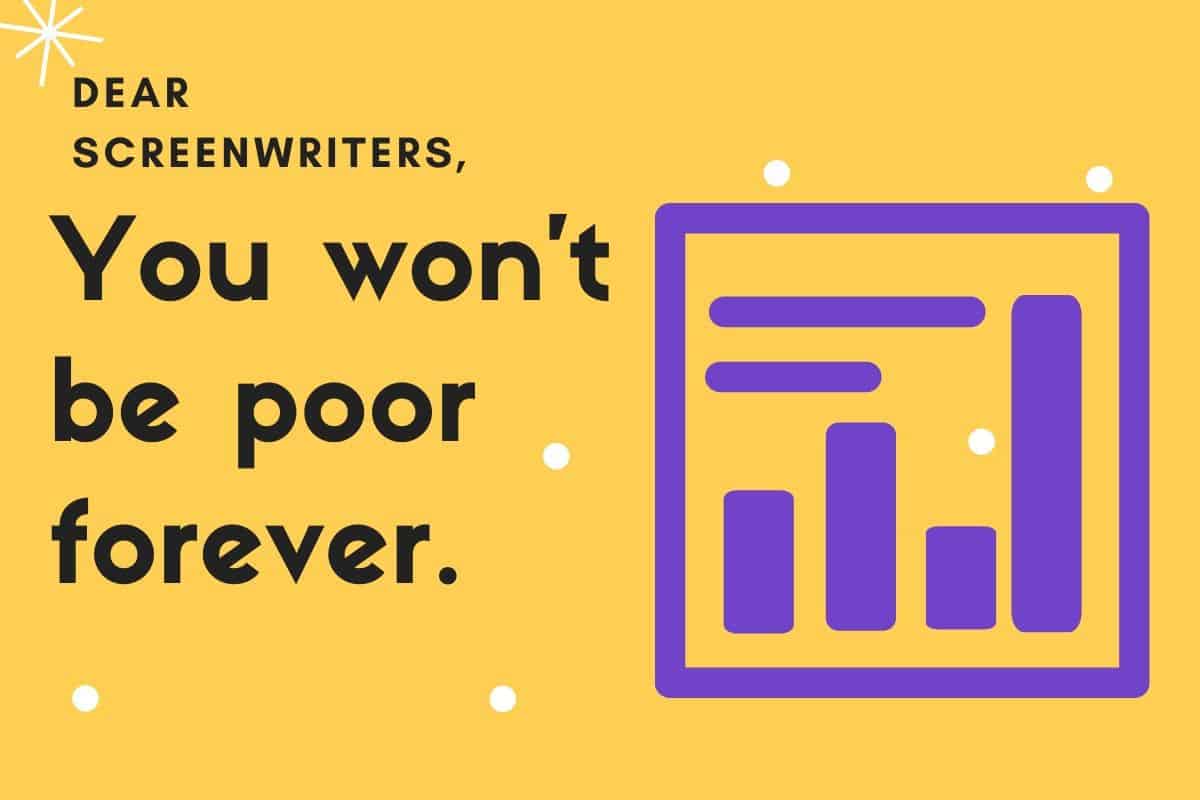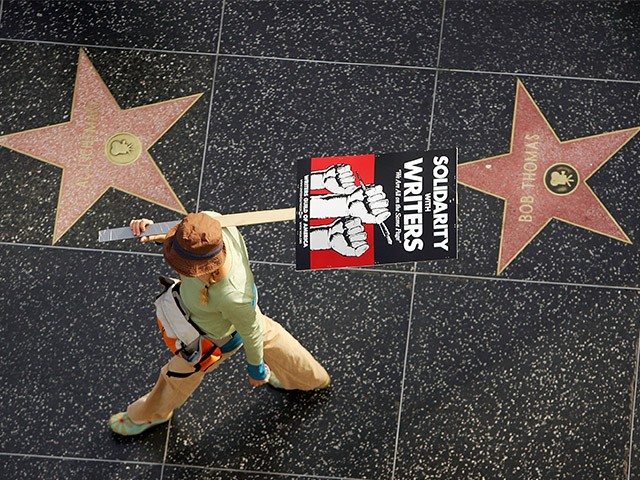Why Can't Screenwriting Work Like Stage & Music Publishing?

Composers who write sheet music publish it as an original literary work to a library catalogue, and record labels purchase the rights to make a sound recording of it in the form of up-front payment and/or royalties. Is there any reason producers shouldn't operate as record labels, and license the rights to a make an audiovisual adaptation/depiction of an original screenplay as they do a novel or music tablature?
The more you think about it, the more graves it digs up and nerves it presses on.
Why on earth does the business work this way, other than to service one side of the deal like a cheap prostitute?
The Perils and Poverty Of A Screenplay Deal
The painful truth is less than 1% of screenplays are "optioned" or purchased. It's hard to say exactly after that, but the data suggests 1% of those are actually produced. Only 25 scripts were sold in 2020.

Let's say you've struggled through drafts 1 to 60 on your fantastic story and you're ready to go to market. That's known as a "spec" script, as it is sold on a speculative basis and hasn't emerged from a work-for-hire contract.
Assuming your manager has good relationships with a few talent agents, and you know a good IP lawyer, there are two main routes ("multi-steps") with a potential buyer:
- Paying to exclusively "reserve" the rights to the work with the intention of purchasing it later.
- An outright purchase of the literary work.
Prime facie, any normal, reasonable person would realise how stupid this is. Option A is dumb, but option B is simply bizarre.
Now, assuming your buyer is champing at the bit for your PDF file, the outright purchase goes like so, as most, if not all studios are signed up to the Writers' Guild of America (WGA) Basic Agreement. So you have to be too, whether you like it or not.
You must be paid a minimum amount set by the WGA, who publish a pay scale. This mind-bogglingly complex list is broken down into periods, and across low and high budget productions, and assumes you have been hired to write a story freelance directly by the producer.
In the third period, the minimums are $81,815 (low budget movie) and $153,579 (high budget movie).

In a sale, you will be offered minimum or market value "over" a second payment if the film is produced. So if your piece sold for $100,000 and it got made, you'd be in for a $2.5M. That's "100 over 2.5".
Here's how that's really going to break down:
- You're not getting the $2.5M, because the odds are it won't get made, or they'll find a way out of it ("we'll schedule it over the back end");
- Your manager takes 10%, so you're down to $90k;
- The agent will take 10%, so you hit $80k;
- The lawyer is going to do what lawyers do, so let's factor in another $10k;
- The IRS will want 25%, and the state 10%.
- The deal will be so opaque and trapdoor-ed, you'll need to sue a lot of people to get paid at all.
Before you're even banked the check, the deal reps have skimmed off 30% ($30k), and your tax is $35k. You're left with $30k to share between each writer.
This is for something you could have taken three years to write, and have had to put twice as much in to market and sell. If you manage three deals a year like that (ambitious, to say the least), your $90k net salary is barely enough to qualify in the middle class bracket.
And as you sold the entire thing, you don't get royalties. You get "residuals" from 1-2% of the gross back end of the production as the money machine turns. Otherwise known as crumbs.

This is what Hollywood does best: bullshitting people with glittering lights into giving up everything they have.
The Crime Scene: What Happened Here?
No sane person would do business like this. But writers aren't sane. They are hopelessly morbid and emotionally stunted freelancers hoping for a glimpse at fortune for their tortured literary genius; like actors, their expansive imagination takes over as a lust.
The writer has created an original work of fiction, and formatted it for the screen. They have created literature, and supporting materials to dramatise it. The novelist writes theirs in MS Word, for the typesetter to finish; the screenwriter does two jobs at once.
A novelist doesn't sell their entire book to a publisher.
A musician doesn't sell their sheet music to a record label.
A painter doesn't sell their canvas to an art gallery.
A software developer doesn't sell their code to the Google/Apple stores.
Screenwriting is the only art form where independent intellectual property (i.e. not work-for-hire) must be forfeited for it to be materialised. A producer has leveraged the narrowness of the market and their considerable purchasing power over an individual. Hence the reasoning for the existence of the WGA, due to the sheer level of abuse.
The producer has managed to force the writer to self-abnegate and give up all the intellectual property rights to their work. That is unheard of in any literary field. Some, yes; but not all.
They do this for one reason only: it's in their interest to purchase outright.
The writer has no interest in conceding the entire ownership of their IP - other than it being in the producer's interest as their purchasing motivation.
Naturally, the original writer is paid off, fired, ignored, and the original material butchered in multiple "polish" sessions to appease narcissistic stars and executives.
In the most optimistic scenario, like a comic book movie:
- A producer purchases a script for $100,000;
- A studio/financier pours in $100M in production budget to make it;
- The box office collects receipts of $1BN.
To make a billion in receipts, the cost to the producer is $100,000. It's lucrative work if you can get it. What started at $1000/page ends up reaping $1,000,000/page when it is commercialised.
If the writer is lucky, they'll get the second production payment, and 1% of the back end (LOL!).
The message is: take your cash and go away.
The studio will of course claim they take the most risk, which they do. However, they wouldn't be taking the risk unless they were satisfied with the attractiveness of the material itself. In classic chicken-egg style, you wouldn't be able to make $1BN on a movie unless the source material actually could.
$80,000 for a written dream and your movie in the cinema sounds really impressive and enticing, doesn't it?
What we have here is the creative part of Hollywood Accounting at the art level: studios and producers deliberately front-loading the deal to obtain copyright ownership of material they can exploit. And doing it in that time-tested style of promising fame and riches.
This is a David vs Goliath situation. But there are forty Goliaths.
There are thousands born every minute.
The Labyrinth of Problems & Dysfunction
Hollywood makes absolutely no sense to anyone outside it until you realise one simple thing: it's not about efficiency; it's about who controls the process. Power, in a word. The dysfunction is there for a reason, and it's not going away.
It's about the gatekeeping; who has the ability to block and bottleneck the path.
- Writers think they control the process because they wrote the story;
- Competitions and readers think they control the process because they score the story;
- Consultants think they control the process because they create the writers;
- Producers think they control the process because they made the package;
- Wall St think they control the process because they provide the cash;
- Studios think they control the process because they operate the money;
- Executives think they control the process because they choose what to produce;
- Unions think they control the process because they control the people;
- Pressure groups (e.g. GLAAD) think they control the process because studios will cave to their threats of bad publicity;
- Lawyers think they control the process because they write the deals;
- Stars think they control the process because they bring in the crowd;
- Insurers think they control the process because they can halt production;
- Agents think they control the process because they control the stars;
- Publicists think they control the process because they control access to the stars;
- Distributors think they control the process because they get the film shown;
- Governments think they control the process because they can restrict distribution;
- Cinemas think they control the process because they exhibit the product;
- Journalists think they control the process because they provide the publicity;
- Big Tech think they control the process because they can buy the studios;
Everyone is vying to be the bottleneck, and take the credit. Success has many fathers, but failure is an orphan.
So if you come here thinking you'll be the one to fix the problem, you're in for a "Hollywood No": an amazingly enthusiastic reception, but no call back.
The problems from this madness are numerous.
- Screenwriters are forced to act as both author and publisher.
- Screenwriters are forced to waste time and money promoting their own work to hundreds of different agents and buyers, who are also forced to deal with hundreds of individual writers.
- Screenwriters have no option other than to work for producers.
- Sales terms and revenues are absurdly prejudiced towards producers, who can be abusive or predatory.
- A producer’s interest in complete ownership of a work conflicts with the writer’s interest of retaining theirs.
- Screenwriters have no idea whether their work will be made, or rot on a shelf.
- Screenwriters are forced into costly, involuntary, politicised union membership which may have negative consequences for their career.
- Screenwriters forfeit all further potential opportunities or revenues from their work by conceding ownership of it.
- Producers are forced to work with original authors they may want to replace.
- Screenwriters forfeit any say in how their work is modified or used by conceding ownership of it.
- Copyright registration does not provide a chain of custody, or auditable means of establishing procedural fraud.
- Screenwriters are forced to pay for a mess of support services to finalise their work.
- Screenwriters can’t afford legal costs of litigation or enforcement.
- Screenwriters can be threatened with negative consequences for standing up for themselves.
- Producers are unwilling or unable to receive unsolicited material.
- Screenwriters are wary of submitting material to buyers or promoters, because they have an immediate conflict of interest.
This goes on, and on, and on, and on.
All of it is favour of the producers and studios, despite the entire value chain resulting from the copyright on the original work.
Stage/Play Theatrical Publishing: The Original Fiction
Humans have been writing and performing plays for thousands of years back to the Greek times; even before novels. They had to write them down and/or pass them down orally.
Shakespeare pre-dates Hollywood. Written plays were always published. They are now published to a theatrical catalogue. The industry is little-known, but well established.
Examples:
- http://www.methuen.co.uk/
- https://www.concordtheatricals.com/
- https://www.dramaticpublishing.com/
- https://www.theatricalrights.com/
- https://www.broadwayplaypub.com/
- https://www.dramatists.com/
There's no mystery here. A playwright pens a manuscript, and a theatrical publishing house treats it like a novel.
The licensee obtains performance rights to the play. No-one can make any changes to the material, including changing characters or removing bad language. It must be recreated faithfully, through an approval process.
The process works exactly as normal publishing, and the author receives royalties.
The guidance given by DPS is quite curious.
Royalty fees for musicals are set on a case-by-case basis. If you are uncertain whether your theatre is professional or nonprofessional, see the FAQs page for more information on this topic. Theatres with 250 or more seats will be charged higher fees than those shown on the plays' pages. Fees will be based on seating capacity, ticket price, and other factors.
DPS advises you to not hold auditions, begin rehearsals or make any major production plans before you obtain written permission to proceed.
For individuals and student organizations, full payment of license fees and materials is due two weeks from the date the license is issued.
All DPS plays are protected under International, Federal and Common Law Copyright. Any unauthorized performance or use of these plays may constitute an infringement of the copyright and a violation of the law, with potentially serious legal consequences for the infringer. No play may be produced unless written application is made to and written authorization received from Dramatists Play Service, Inc. All performance rights are granted by written contract only. There is no such thing as "verbal approval."
A good example of a stage adaptation is, of course, "His Girl Friday", which was a screen depiction of Ben Hecht's play "The Front Page".
It's easy to see why the studios hate it. It's bad enough that DPS has a warning on their licensing page:
"Special clearance must be obtained for all productions in New York City and the greater Los Angeles area. This clearance can take additional time to secure, and approval in these areas is by no means guaranteed."
The Guardian (yuck) describes it as a growth industry:

Music Publishing: A Shitstorm of Complexity
There's hew areas of intellectual property law which confuse everybody more than music publishing. No musician understands it, and their reps don't either, despite what they claim.
Just like plays, humans have been making music for thousands of years, and we had to write it down or pass it on. When Mozart created a symphony, he published it as sheet music. As with plays and musicals, a licensee has always need to obtain performance rights.
The trick to understanding music publishing is the invention of radio.
Radio introduced the concept of a taped recording of music. Anyone could buy sheet music, and record their performance of it for sale. When a radio station played it repetitively and accrued listeners, the author was due a royalty. The monitoring is done by a Performing Rights Organisation (PRO).
Every song has two copyrights: the composition (songwriters, composers, publishers), and the recording (performers, labels).
A composer or songwriter is similar to a playwright:
- An original song or score is created.
- The sheet music for that work are published.
- Performers buy or license the work, and rights to make a recording of it.
What's complex today is the entire deal is packaged from the beginning:
- A band of musicians create original music together.
- The identified parts of their music - lyrics, melody, string parts, arrangement etc - are published on paper, alongside their separate authors.
- A record label licenses the rights to make a physical recording of the sheet music.
- The rights to play the recording or perform the music are split up in a convoluted way.
Record labels own the entire process by signing up the band to a recording agreement, which involves them handing over all the rights - publishing, performance, recording etc - to the same family of companies within a corporation.
Examples:
- https://www.warnerchappell.com/
- https://www.umusicpub.com/
- https://www.kobaltmusic.com/services/music-publishing
- https://www.bmg.com/de/
Music publishing is insanely, ridiculously over-complex and that complexity is what allows music companies to rape artists for every ruble their pockets might hold. Musicians are simply too daydreamy to get it.
So, Where Is Screenplay Publishing?
Put simply, it doesn't exist in any meaningful form. That's deliberate.
Stage publishing is an offshoot of traditional publishing and designed for physical, repetitive performance in a specific location. Music publishing is designed for the physical, repetitive transmission of a recording. Film falls somewhere in the middle: you can transmit copies of a recording, and it's a published literary work of fiction to be performed.
It's lack of existence is deliberate, for multiple reasons:
- Film producers are predatory creatures. The stage publishing process is constrictive, and doesn't favour them at all.
- Record labels are predatory creatures. They've evolved to control every part of the process before film was established.
- The same corporations control both.
Screenplay publishing doesn't exist simply because producers don't want it to.
But there's one other tangential reason: unions.
In 1912, the Authors League of America formed in New York to represent writers.
The Screen Writers Guild (SWG), an offshoot, was formed by 10 screenwriters in 1920 who published an open letter in Variety and bought a mansion on Sunset Boulevard.

7 years later, Mayer formed the Academy to get around them.
A few years previously, something interesting happened.
"It sought to establish criteria for crediting authors for creating or contributing to a screenplay, known as "screen credits." The film studios responded by refusing to hire Guild members and forming a rival organization called the Screen Playwrights. When the Guild appealed to the National Labor Relations Board (NLRB), the NLRB certified the Guild as the "exclusive bargaining agency" for screenwriters employed by 13 of 18 Hollywood studios, based on elections in which writers chose the Guild over the Screen Playwrights. The film producers acceded to the NLRB ruling in March 1939."
In 1941, the studios reached agreement with them. In 1954, five guilds merged to become the Writers Guild of America (West, and East).

But this wasn't before their most infamous emergence on the world stage: the McCarthy Red Scare and House Committee on Un-American Activities (HCUA). due to two vicious strikes.
Walt Disney's pressure group issued an advice pamphlet for producers, described as:
"subtle communistic touches" in their films. Its counsel revolved around a list of ideological prohibitions, such as "Don't smear the free-enterprise system ... Don't smear industrialists ... Don't smear wealth ... Don't smear the profit motive ... Don't deify the 'common man' ... Don't glorify the collective."
In 1947, 10 screenwriters were blacklisted for their involvement with communist organising, and 300 more ended up being boycotted by studios. It continued until 1960, when Trumbo got his screen credit back.
"Hearings regarding the Communist infiltration of the motion picture industry (Washington, DC: Government Printing Office, 1947), pp. 539-540"
https://ia802607.us.archive.org/23/items/hearingsregardin1947aunit/hearingsregardin1947aunit_bw.pdf
Howard Lawson, one of the Hollywood Ten jailed for contempt of Congress, upon release told a class of student actors in Hollywood:
"Unless you portray any role given you in a manner to further the revolution and the class war you have no right to call yourself an artist or an actor. You must do this regardless of what the script says or what the director tells you. Even if you are nothing more than an extra you can portray a society woman in a manner to make her appear a villainness and a snob and you can portray a working girl in such a way so as to make her seem a sympathetic victim of the capitalist class."
The WGA has always been an incredibly political organisation and openly supportive of one party:


Quite what any of that has to do with representing writers is anyone's guess, but we all know exactly what role trade/labour unions play in the communist game plan.
The Guild's own description of what they do is revealing:
SERVICES FOR OUR MEMBERS
Our primary duty is to represent our members in negotiations with film and television producers to ensure the rights of screen, television, and digital media writers. Once a contract is in place, we enforce it. Because of the WGAW’s long-term efforts, writers receive pension and health coverage, and their financial and creative rights are protected.
CREDITS
We are responsible for determining writing credits for feature films, television, and digital media programs—a responsibility with far-reaching impact, financial and artistic. Writers’ livelihoods often depend on the careful and objective determination of credits.
RESIDUALS
The WGAW monitors, collects, and distributes millions of dollars in residuals (payments for the reuse of movies, television, and digital media programs) for writers each year.
WE REGISTER YOUR INTELLECTUAL PROPERTY
The WGAW Registry is the world’s leading screenplay registration service, registering more than 50,000 pieces of literary material every year. Since 1927, the Registry has aided in the creation of legal evidence and is a vital instrument of the Guild’s service to writers. We invite you to submit your work to be archived by the WGAW Registry as documentation of your authorship.
Doesn't this all sound a little familiar?
These are the functions typically carried out by publishers.
A publisher is a private company dealing in private intellectual property. Unions are a collective social enterprise working the "general benefit" setting quotas, forced membership, and enforcing compliance with the collective's wishes.
Copyright is instant the moment something is put on paper, and not "registered". Any third party can be witness. Residuals are a bit like Universal Basic Income (UBI). Credits are easily enforced by a contract interpreted in a court, and those are negotiated by lawyers.
This all sounds a bit capitalism vs socialism, rather than art. Maybe with good reason, considering how the Marxist fiction of the proles and predators plays out so dramatically with poor writers and billion-dollar studios.
What Would A Screenplay Publishing Company Look Like?
At this point, screen publishing is a niche idea which faces an uphill battle of disrupting entrenched incumbents who claim to have solved all the problems and only have an interest in maintaining the status quo.
- It's quite possible for theatrical publishers to offer screenplays.
- It's quite possible for unions to offer publishing.
- It's entirely possible for studios to refuse to buy from publishers, or be prevented from doing so by existing agreements.
It all comes down to one factor: writers deciding what to do with their careers and their copyright. And everyone is banking on them selling themselves out for a credit.
Screenplay publishing actually has the best of both worlds, and by combining them, we arrive a unique theory:
A. It is a literary work like a play, which has a strong precedent.
B. It is analogous to sheet music, which can be turned into a recording and copied for transmission.
Let's look at those problems again is this light.
Publishing would establishing a formal process. A producer would purchase the rights to make an audiovisual depiction of a published screenplay. It would effectively be a specialist bookstore with 200 customers.
- A publisher would relieve writers of the need to publish their work themselves.
- A publisher would exist as a writer’s single point of contact with the market, and provide a catalogue of material for producers.
- Writers could choose to work for a publisher instead of producers.
- Producers would be forced to deal with someone their own size, and insulate the individual writer from the consequences of disputes.
- Writers’ interests would automatically prevail because their publisher only provides the rights to record a depiction of their work, rather than requiring outright sale.
- Producers would be prohibited from obtaining exclusive ownership of a work to blackhole it or vexatiously remove it from the market. Once the material is published, writers could spread-bet different licensing opportunities.
- The enforced requirement of union membership would be moot: screenwriters would be free to join, or not join. Producers would be constrained by contract with the publisher instead.
- Writers would retain ownership of their material and reserve their rights to exploit it as they wish.
- Producers would be free to do as they wish with the material they licence, within the boundaries permitted by the original author.
- The publisher could retain the writer’s ownership of their material and issue conditional licensing rights which include the rights of disclosure, complaint, veto, and injunction.
- The publisher would exist as a neutral third party who are immediately witness to copyright and able to provide chain of custody evidence.
- The publisher would license the rights directly with the producer, to make a recording/depiction of a published screenplay shared with writers on a 60/40 basis, and enforce the payment of ongoing royalties for any usage. There would be no fees to agents, managers, lawyers, or anyone else, because the producer’s deal is directly with the publisher.
- The publisher could provide proofreaders, copy editors, story developers, and literary analysis technology to writers as part of their publishing contract.
- The publisher would do the enforcement corporately on behalf of the writer.
- The publisher would proxy the writer’s battles for them and insulate them from personal animus from producers.
- The publisher would exist as a neutral party who does not produce television or films itself so have no liability by reading manuscripts, nor cause or benefit for bad faith behaviour.
However, many exceptions would need to be incorporated into a publishing contract per work, and not per writer (as agents do):
- The scope and leniency for changing the work would need to be much more flexible to meet producers' needs, e.g. using the music model of key structural elements (story events, characters etc).
- Much more sophisticated methods of detection and enforcement would need to be in place.
- The power of approval & veto & retraction on a shooting script has much more serious financial implications, and would need serious legal work.
- Writers would need to be free to publish each piece with different publishers, and retain their existing representations if necessary.
- It's unclear how work-for-hire could deal with the employment question, as there's no direct analogue.
It's tough to understand who would hate it more, producers or the unions. To the former, it would constrain them, and the latter, replace them. Anyone can license from a publisher. Anyone can contract with one. The people it pushes aside are the skimmers and grifters who own the dysfunctional process, and the people it benefits are too timid to risk rejection after investing so much time.
The difference here is choice.
Writers working with a union are bound by collective policy. On their own, they are prey to a predatory niche market and unable to negotiate. The support staff - managers and agents - all want a job in the studios via the revolving door, so they're aiming to please their future boss.
At some point, we need a gorilla of the jungle who knows how to write FADE OUT.







